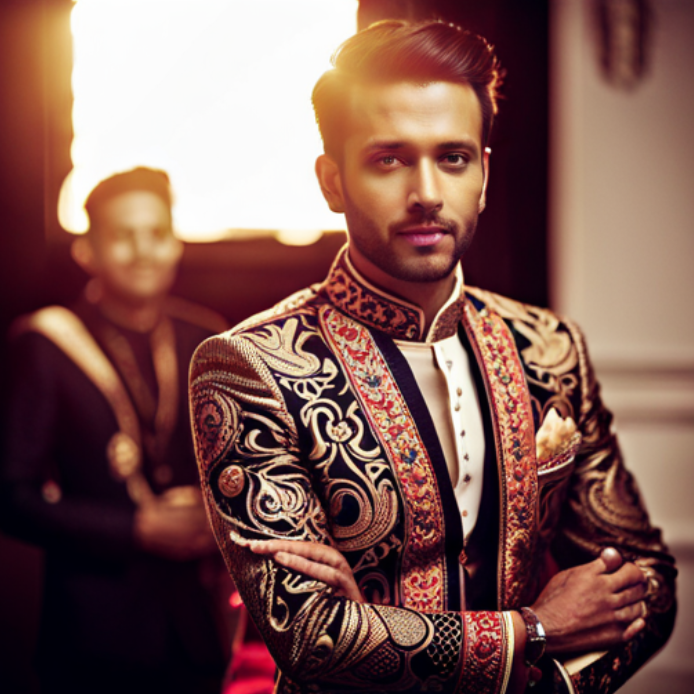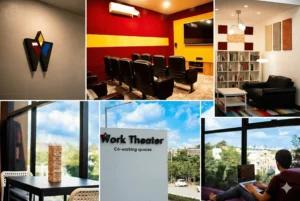Let’s dive deep into the intricacies of the Manyavar business model, as we unravel the elements that have made this ethnic wear brand a powerhouse in India.
In the realm of Indian ethnic wear, one brand that stands out for its unwavering commitment to tradition, coupled with modern entrepreneurial flair, is Manyavar. Launched in 1999 by founder Ravi Modi, Vedant Fashions’ Manyavar began as a small store in Kolkata, India, with a vision to revolutionize the market for men’s ethnic wear. Today, it boasts more than 500 stores across 175 cities globally, offering a rich array of men’s and women’s ethnic wear.
Ravi Modi’s vision was ignited by a gap he identified in the market – a void of high-quality, stylish ethnic wear designed exclusively for men. He noticed the focus on western attire in the Indian men’s fashion market, with ethnic wear being limited and often unimpressive. This pushed him to create a brand that not only catered to the ethnic wear needs of men but also redefined it by introducing a level of sophistication and charm.
The Business Model Canvas: Manyavar
To comprehend the stellar success of Manyavar, we’ll use Alexander Osterwalder’s Business Model Canvas. This strategic tool provides a visual representation of the key activities, resources, and relationships that define a company’s business model. The canvas consists of nine components: Key Partners, Key Activities, Key Resources, Value Propositions, Customer Relationships, Channels, Customer Segments, Cost Structure, and Revenue Streams.
1. Key Partners
Manyavar’s key partners include its fabric suppliers, artisans, franchisees, and logistics partners. These partners are crucial in maintaining the product’s quality, ensuring timely delivery, and expanding the brand’s physical presence. They have contributed significantly to Manyavar’s scalability and reach across different geographies.
2. Key Activities
Manyavar’s key activities involve designing, manufacturing, marketing, and selling ethnic wear for men and women. The design process is crucial as it distinguishes Manyavar’s offerings from competitors, with styles that blend traditional aesthetics with contemporary trends. Their activities also extend to managing a vast supply chain network that includes procurement, production, inventory management, and distribution.
3. Key Resources
Manyavar’s primary resources are its design teams and skilled artisans who create the unique pieces, its extensive physical retail presence, and a strong supply chain network. Their online e-commerce platform also acts as a significant resource, making their products accessible to a global customer base. In the broader sense, the brand’s reputation and the trust it has earned among its customers are invaluable resources.
4. Value Propositions
Manyavar’s value proposition lies in providing high-quality, fashionable ethnic wear that appeals to a generation that values tradition yet appreciates a modern touch. Their wide range of offerings for various occasions, from weddings to festivals, gives customers plenty of choices. Additionally, the brand’s credibility and its ambassadorial campaigns featuring popular Bollywood actors enhance the value proposition.
5. Customer Relationships
Manyavar prioritizes a personalized relationship with its customers. Their in-store representatives offer customized suggestions, catering to the unique requirements of each customer. Furthermore, they provide post-purchase services like alterations. The brand also fosters relationships online through effective customer service and engaging social media interactions.
6. Channels
Manyavar utilizes a mix of physical and digital channels. Their expansive network of stores serves as a critical touchpoint, while their online platform expands their reach to customers who prefer e-shopping. They also use various marketing channels, such as television and digital advertising, to communicate with their customers.
7. Customer Segments
Manyavar primarily targets middle to upper-class customers in India who are seeking quality ethnic wear for special occasions. However, with the expansion of its product portfolio, Manyavar now caters to a broader demographic, including younger audiences and international customers appreciating Indian ethnic fashion.
8. Cost Structure
Manyavar’s cost structure includes costs associated with raw material procurement, production, marketing, retail outlet management, shipping, and customer service. As they work with a variety of fabrics and intricate designs, ensuring the quality of raw materials is a significant part of their costs.
9. Revenue Streams
The primary revenue streams for Manyavar come from the sales of their apparel through their physical retail stores and online platform. Additional revenue comes from their franchise model, where franchisees pay a certain amount to operate under the Manyavar brand.
Unraveling the success of Manyavar using Alexander Osterwalder’s Business Model Canvas provides valuable insights into the strategic underpinnings of a successful ethnic wear brand. Manyavar’s story is one of astute identification of a market gap, clever utilization of resources, and an unwavering commitment to its value proposition. It shows that understanding your customer’s needs, building strong relationships with partners, and managing key resources effectively are integral to building a thriving business in a competitive market.
The ingenuity of Manyavar’s business model lies in its ability to sustain its unique value proposition while scaling up. This is a testament to the leadership of Ravi Modi and his vision for the brand. The brand’s journey from a single store to an international brand is a roadmap for businesses that aspire to create a significant impact in their industry.
Finally, while Manyavar has indeed set a high bar in the Indian ethnic wear market, the constantly evolving fashion landscape calls for continuous innovation and adaptation. The success of Manyavar is not a mere product of well-executed strategies, but also its capacity to embrace change. For companies and entrepreneurs seeking to leave their mark, Manyavar’s business model serves as an inspiring narrative of blending tradition with innovation, proving that with the right strategies, any market gap can be turned into a business opportunity.
Did you know? Designers like to use our coworking space in Bangalore
Call +917090977222 to reserve your space at Work Theater
Learn more about our coworking space on our YouTube channel Work Theater Studios where we talk about a variety of topics including personal finance, entrepreneurship, business and life.




